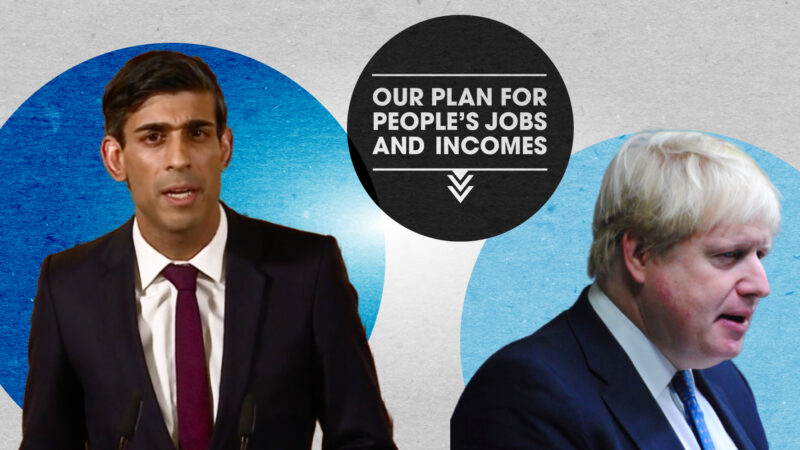
“This is not a time for ideology and orthodoxy. This is a time to be bold. A time for courage.” These were the words of Rishi Sunak last week, when he promised to do “whatever it takes” to see the country through the coronavirus crisis. The smoothness of his delivery has won the 39-year-old Chancellor, who took up his post just six weeks ago, many plaudits. And the clarity of his statements does stand in stark contrast to the bafflingly foggy speeches we get from the Prime Minister, which is much appreciated. But is Sunak making good on his pledge not to allow ideology to get in the way of economic coronavirus measures?
There are many entirely reasonable, even wholly necessary, measures that have not been announced. Matt Hancock admitted that he could not live on the £94.25-a-week provided through statutory sick pay, yet the government is still refusing to increase SSP. It has merely said that people will be allowed to claim from day one of illness, rather than day four. Then there is the fact that three-month mortgage holidays have been made available to homeowners, whereas renters have not been offered any deferment – let alone a suspension. As John McDonnell has pointed out: “A rent holiday is not the same as a mortgage holiday. Rent is paid continuously while in tenancy, while mortgages are fixed term meaning that repayment terms can simply be extended.”
Even the ban on evictions of tenants affected by coronavirus ultimately fell far short of what was originally understood. Landlords were given additional protection as buy-to-let mortgages were included in the payment holiday, but the government did not make relief for tenants a condition of this offer. They have even, laughably, vowed to “issue guidance which asks landlords to show compassion”. But worst of all, the renters part of the coronavirus bill did not match up to the initial commitment. The Housing Secretary said “no renter who has lost income due to coronavirus will be forced out of their home”. Yet eviction notices have not been banned – the legislation simply proposes to extend the notice period to three months. As Labour’s John Healey put it, “it just gives renters some extra time to pack their bags”.
One of the most obvious examples of ideology taking precedence over common sense is the government’s refusal to join the EU ventilator procurement scheme, despite being able to benefit from it and despite serious concerns about our current capacity. Perhaps this is less about ideology, and more about public relations – like the refusal to admit that the Brexit transition period will have to be extended. Either way, it seems deeply irresponsible, particularly when taking part does not appear to prevent the UK from also taking national action. No, this is about Brexit. A Downing Street spokesperson made that clear when he said: “We are no longer part of the EU. This is one area where we are making our own efforts. We have been having very good discussions with manufacturers.”
This decision is also concerning because its confirmation came this morning just as the government acknowledged that new orders of ventilators from Dyson are dependent on passing regulatory tests. There is therefore no confirmation now that all of that desperately and urgently needed equipment will be bought or rolled out to hospitals. And the managing director of medical parts manufacturer MEC Medical has told BBC Newsnight that “nothing” happened when he first offered to make ventilators, and said they “should have given funding to existing ventilator manufacturers and existing companies like us”.
Sunak is right to say that this is the time to be bold and courageous. The more than half a million people who have volunteered for the NHS since the government put a call out late on Tuesday are fulfilling that role. To truly allow all of us to pull through this crisis, the government must show that same spirit.




More from LabourList
‘Help shape the next stage of Labour’s national renewal through the 2026 NPF consultation’
‘AI regulation is key to Labour’s climate credibility’
Ben Cooper column: ‘Labour needs to rediscover its own authentic populism’